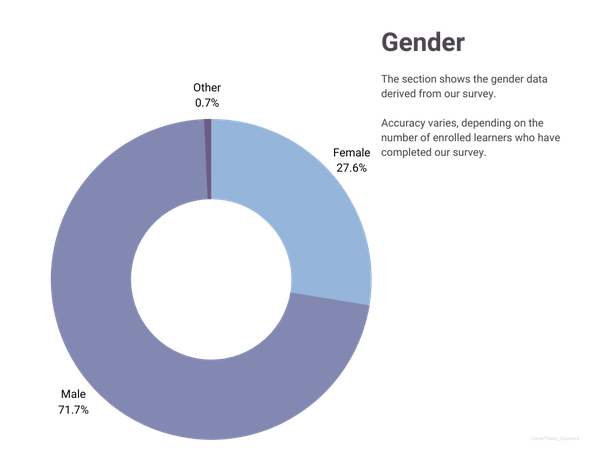Welcome to Game Theory
This course provides a brief introduction to game theory. Our main goal is to understand the basic ideas behind the key concepts in game theory, such as equilibrium, rationality, and cooperation. The course uses very little mathematics, and it is ideal for those who are looking for a conceptual introduction to game theory. Business competition, political campaigns, the struggle for existence by animals and plants, and so on, can all be regarded as a kind of “game,” in which individuals try to do their best against others. Game theory provides a general framework to describe and analyze how individuals behave in such “strategic” situations. This course focuses on the key concepts in game theory, and attempts to outline the informal basic ideas that are often hidden behind mathematical definitions. Game theory has been applied to a number of disciplines, including economics, political science, psychology, sociology, biology, and computer science. Therefore, a warm welcome is extended to audiences from all fields who are interested in what game theory is all about.
Supported Language(s): English, French, Spanish, etc.
Instructors' Voices
In this course, you will learn about:
- The reason why we need game theory to analyze social problems
- Nash equilibrium as a unified solution concept and the reason why players come to play Nash equilibrium
- The relationship between intellectual capacity of players and Nash equilibrium
- The relationship between the rationality of individuals and socially desirable outcomes
Highlights
Highlight video: Welcome to Game Theory1
Highlight video: Welcome to Game Theory2
Highlight video: Welcome to Game Theory3
Learners' Statistics






Learners' Voices
-
Student A
I appreciate the simple and substantial content of the course and the method of delivery and assessment. I took the course to really understand what game theory really is about. It help me understand that nash equilibrium matters in relationships. I love the idea that nash equilibrium may not be reached due to wrong beliefs of others. The common good is not compatible with individual good but there are strategies to sustain common good. Thank you very much.
-
Student B
I am a computer science major with 19+ years of industry experience. Your course is amazing. I had a long time quest to understand some basic concepts of game theory and your course is just right for that kind of introduction. I heard about game theory many years ago and even read a book called short introduction to game theory. Listening to your lectures was a different kind of experience. After learning about Nash equilibrium and solving some exercises, I was tempted to think about writing a program to solve it and then I was shocked. It belongs to an entire different class of complexity!
-
Student C
I have been working at several financial and IT companies in Japan, incl. Gaishikei company. I studied law science in my university days long time ago. Based on my carrer at the financial institutions (in those days my job was related to international investment), I have an interest in economic situation topics on the news and have been thinking to take some economics course at university. We sometimes hear the word of recurrent education, thus I took some course of university for business person ("Koukai-kouza") of nearby university. By chance, I was able to find this course on the web. It was pretty nice for me to learn game theory in English. I really enjoyed it. After a long time since I graduated university, this experience reminds me of my university days and really enjoyed this course. Thank you very much.
-
Student D
It was indeed great listening to professor Michihiro Kandori. I love to teach game theory in International Relations and wanted to learn and employ the skills in teaching it to my students. It was wonderful experience. The interdisciplinary perspectives on game theory are interesting and the explanation was succinct. Thank you. I loved the examples and the clarity in which they are explained and followed.
-
Student E
This was an outstanding course. This course gives you great introduction to the fundamentals of Game Theory. For anyone wanting an insight into this topic, I highly recommend it. Thank you to the course creator and lecturer, Professor Michihiro Kandori.

